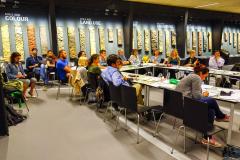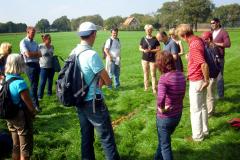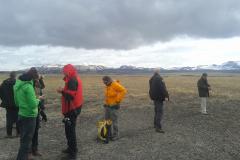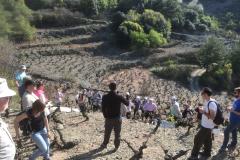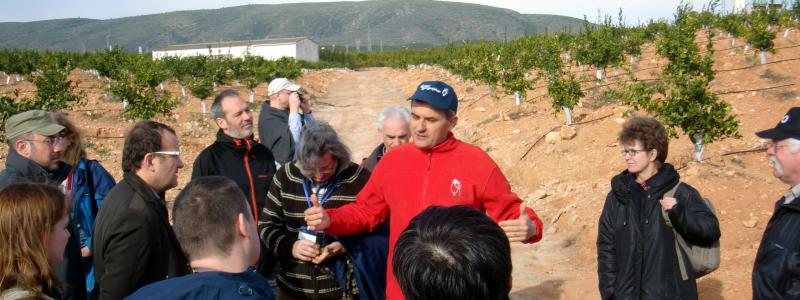
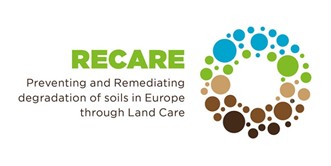 The EU-FP7 project RECARE aimed to develop effective prevention, remediation and restoration measures using an innovative transdisciplinary-approach. It actively integrates and advances knowledge of stakeholders and scientists in 17 case studies, covering a-range of soil threats in different bio-physical and socio-economic environments across Europe.
The EU-FP7 project RECARE aimed to develop effective prevention, remediation and restoration measures using an innovative transdisciplinary-approach. It actively integrates and advances knowledge of stakeholders and scientists in 17 case studies, covering a-range of soil threats in different bio-physical and socio-economic environments across Europe.
The case studies considered/evaluated:
- the current state of degradation and conservation using a new methodology, based on the WOCAT-mapping procedure,
- impacts of degradation and conservation on soil functions and ecosystem services. These will be quantified in a harmonized, spatially explicit way, accounting for costs and benefits, and possible trade-offs,
- prevention, remediation-and restoration measures, selected and implemented by stakeholders.
- the applicability and impact of these measures at the European level using a new integrated biophysical and socio-economic model.
National and EU policies were reviewed and compared to identify potential (in)coherence, contradictions and synergies. Policy messages were formulated based on the case study results and their integration at European level.
A comprehensive dissemination and communication strategy, including a web-based Dissemination-and Communication Hub, has been established to accompany the other activities to ensure that project results are disseminated to a variety of-stakeholders at the right time and in the appropriate formats.
ISRIC had the lead in WP5 (Selection of promising prevention, remediation and restoration measures) and made a significant contribution to WP3 (State of degradation and conservation in the RECARE Case Study sites), in particular regarding the mapping component using the WOCAT mapping method.
The RECARE deliverables of ISRIC were:
- An extensive literature survey of measures for preventing, mitigating and remediating soil threats in Europe and the wider world, using a wide range of data sources and personal communications with all RECARE project partners (RECARE Report 9).
- Two successful training workshops were held on Stakeholder interaction (Sept. 2014, Wageningen, and June 2015 Iceland), in preparation to the Stakeholder workshops 1 and 2 to be held by every Case Study Site. Almost all study sites held these workshops as planned. Also, two sets of guidelines for holding these workshops were produced and are available through the restricted part of RECARE Website.
- 55 SLM technologies and 17 approaches were comprehensively documented in the WOCAT database and a summary report was prepared (RECARE Report 15: Inclusion of prevention remediation and restoration measures).
- Maps on various aspects of degradation (soil threats) and conservation (SLM) were prepared for all study sites except one, following the WOCAT mapping methodology. Maps are accessible through the WOCAT mapping database and through the RECARE webmap platform at JRC (in ESDAC). Methodology and results are summarised in RECARE Report 08: Report on current state of degradation and conservation.
- The WOCAT methods for documenting technologies and approaches and for mapping were evaluated for their applicability with regards to European soil threats and general conditions. Some recommendations were made (in Report 15) and will be integrated in a revision of the WOCAT methodology (outside the scope of the RECARE project).
The RECARE project was coordinated by Wageningen UR (Soil Physics & Land Management Department) and brings together 28 partners from 17 European countries.
